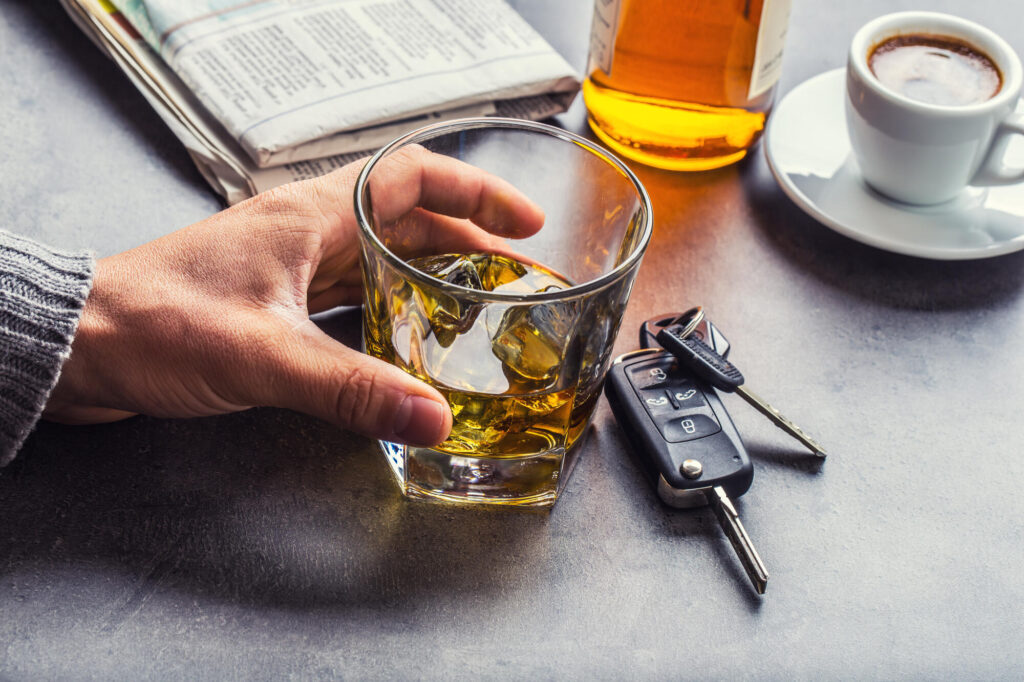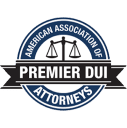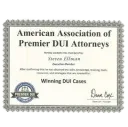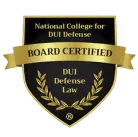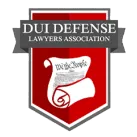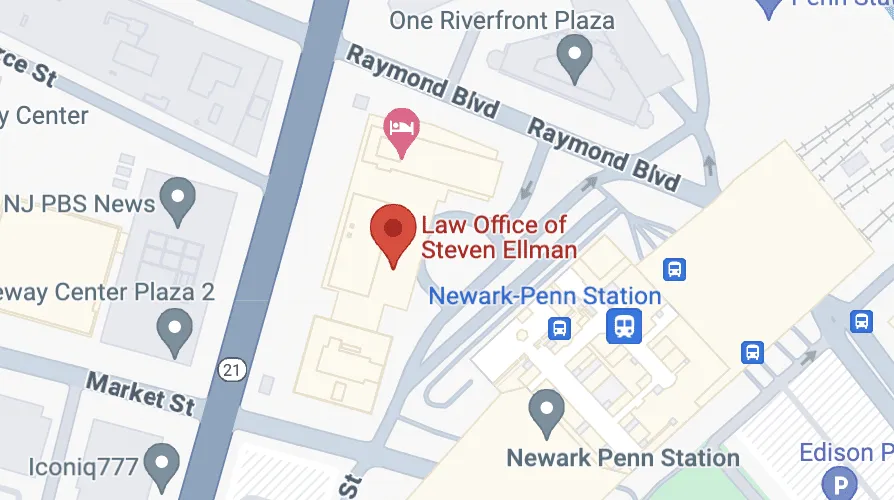NJ Drunk Driving Penalties Explained: What You Need to Know
Learn about NJ drunk driving penalties and how they can affect you. Stay informed and contact Steven Ellman Law for legal assistance today.
Every year, about 1.5 million people in the U.S. are arrested for driving under the influence of alcohol or drugs. This is a serious offense that can have a big impact on your life, leading to harsh penalties that include fines, license suspension, and even jail time.
If you’re facing these charges, understanding NJ drunk driving penalties is crucial. At The Law Office of Steven Ellman, we know how overwhelming this situation can be. With 39 years of experience in DUI/DWI defense, we’re here to help you navigate the legal process and protect your rights.
In this blog post, we’ll take a closer look at the laws and penalties surrounding drunk driving in New Jersey. Let’s get started with this guide to the NJ legal penalties that you should be aware of.
What Constitutes a DUI in New Jersey?
In New Jersey, a DUI (Driving Under the Influence) occurs when a person operates a vehicle while impaired by alcohol, drugs, or a combination of both. The state does not differentiate between DUI (Driving Under the Influence) and DWI (Driving While Intoxicated); both are covered under the same law and have the same consequences.
The legal limit for Blood Alcohol Content (BAC) in New Jersey is 0.08% for most drivers. This means if you have a BAC of 0.08% or higher, you can be charged with a DUI.
For commercial drivers, the limit is lower at 0.04%, and for drivers under 21, any BAC over 0.01% can result in a DUI charge, often referred to as a “Baby DUI.” Even if your BAC is below these limits, you could still be charged if your ability to drive is impaired.
New Jersey’s Implied Consent Law
New Jersey’s Implied Consent Law requires drivers to submit to chemical testing if they are suspected of driving under the influence.
When you obtain a driver’s license in New Jersey, you automatically agree to this testing, which typically involves a breathalyzer test to measure your BAC. The idea behind this law is that by choosing to drive on New Jersey’s roads, you consent to be tested if law enforcement suspects you are impaired.
Refusing to take a breathalyzer test has serious consequences. If you refuse, you can face an automatic license suspension for one year, even if you are not ultimately convicted of a DUI.
Additionally, you could face drunk driving fines and other penalties that may be as severe as those for an actual DUI conviction. This makes it crucial to understand your rights and the implications of refusing a breath test in New Jersey.
Penalties for a First-Time DUI Offense
A first-time DUI offense in New Jersey comes with serious consequences. Even if it’s your first offense, the penalties are substantial. If your BAC is between 0.08% and 0.09%, here’s what you can expect:
- Fine: $250 to $400
- Jail time: Up to 30 days
- License suspension: 90 days
- IDRC classes: 12 hours minimum
These penalties increase if your BAC is 0.10% or higher. In this case, the fines range from $300 to $500, and the suspension of your driver’s license extends to 7 to 12 months.
Additionally, after your license is reinstated, you must install an ignition interlock device in your vehicle. This device, which prevents the car from starting if alcohol is detected on your breath, must remain installed for 3 months to a year. These penalties underscore how seriously New Jersey takes DUI offenses, even for first-time offenders.
Penalties for a Second DUI Offense
A second DUI offense in New Jersey brings much harsher penalties than the first, reflecting the state’s strict stance on repeat offenders. If convicted, here’s what you can expect:
- Fine: $500 to $1,000
- Jail time: 2 to 90 days
- License suspension: 2 years
- IDRC detention: 48 consecutive hours
The penalties don’t stop there. After serving the jail time, you’ll also face a three-year auto insurance surcharge of $1,000 annually.
Furthermore, once your license is eligible for reinstatement, you must install an ignition interlock device in your vehicle, which must remain for the duration of your suspension and for 2 to 4 years afterward.
The court may also impose additional penalties if the offense occurred in a school zone or with a minor in the vehicle. These severe penalties highlight the importance of avoiding a second DUI conviction in New Jersey.
Penalties for a Third DUI Offense
A third or subsequent DUI offense in New Jersey results in the most severe penalties. If convicted, you can expect:
- Fine: $1,000
- Jail Time: Up to 180 days
- Community Service: 30 days
- License Suspension: 10 years
In addition to these penalties, you must complete the Intoxicated Driver Resource Center (IDRC) program, which includes evaluation, referral, and follow-up requirements. An ignition interlock device must be installed in your vehicle for the duration of your suspension and for 2 to 4 years following license restoration.
These penalties reflect New Jersey’s stringent approach to repeated DUI offenses and emphasize the serious legal consequences of multiple convictions.
Additional Penalties and Considerations
In addition to the primary penalties for DUI offenses in New Jersey, there are several other consequences and considerations to keep in mind.
All DUI convictions, regardless of whether it’s a first or subsequent offense, require payment of several mandatory fees. These include:
- $100 surcharge for the Drunk Driving Enforcement Fund
- $100 Motor Vehicle Commission restoration fee
- $100 fee for the Intoxicated Driving Program
- $50 fee for the Violent Crimes Compensation Fund
- $75 fee for the Safe and Secure Community Program
Special circumstances can lead to even harsher penalties. For example, DUIs that occur in school zones or involve minors in the vehicle can result in increased fines and additional penalties. Judges also have the authority to revoke your vehicle registration if deemed necessary.
Furthermore, a DUI conviction will likely cause a significant increase in your auto insurance premiums, impacting your financial situation long after the legal issues are resolved.
How to Contest DUI Charges
If you’ve been charged with a DUI, contesting the charges can significantly impact the outcome of your case. With careful examination of evidence and strategic legal arguments, it is possible to challenge the prosecution’s case. At The Law Office of Steven Ellman, we use our 39 years of experience to help clients navigate this complex process effectively.
Evaluate the Evidence
The first step in contesting a DUI charge is to thoroughly review the evidence presented by the prosecution. This includes examining the procedures followed during your traffic stop and arrest. At The Law Office of Steven Ellman, we meticulously check whether the stop was lawful and if the arresting officer had a valid reason to pull you over.
We also evaluate the accuracy of breathalyzer or blood tests used to measure your BAC. Any errors or inaccuracies in these tests, such as malfunctioning equipment or improper administration, can be critical to building a strong defense.
Challenge the Traffic Stop
Another important aspect of contesting a DUI charge is to challenge the validity of the traffic stop itself. This involves scrutinizing whether the officer had a legitimate reason for pulling you over and if the stop was conducted according to legal standards. We investigate claims of erratic driving or alleged traffic violations to determine their accuracy and legitimacy.
Our team is experienced in identifying procedural mistakes or violations that could undermine the prosecution’s case. We work to ensure that your rights were not violated during the stop, which can significantly impact the outcome of your case.
Dispute Field Sobriety Tests
Field sobriety tests are often used to assess a driver’s impairment, but their reliability can be questioned. These tests need to be administered correctly, and various factors such as environmental conditions or medical conditions can affect their accuracy.
At The Law Office of Steven Ellman, we carefully analyze whether the tests were conducted properly and if the officer had the appropriate training and experience to administer them. We look for errors in test administration or conditions that could have skewed the results, which can be crucial in weakening the prosecution’s evidence and supporting your defense.
Seek Legal Representation
Navigating DUI charges is challenging, which is why consulting with an experienced attorney is crucial. The Law Office of Steven Ellman provides expert legal representation to help you build a robust defense strategy. Our extensive experience enables us to explore all possible avenues for contesting the charges, including negotiating for case dismissal or reduced charges.
We guide you through every step of the legal process, ensuring that your rights are protected and that you receive the best possible outcome. With our support, you can confidently face the legal challenges ahead.
NJ Drunk Driving Penalties Explained
The bottom line is that facing DUI charges can be overwhelming, especially with the severe NJ drunk driving penalties at stake. At The Law Office of Steven Ellman, a leading DUI defense attorney in NJ, we are dedicated to helping you navigate this challenging situation with expertise and compassion. With decades of experience, we offer the knowledge and skill needed to contest your charges effectively.
Don’t let a DUI charge impact your future. Contact us today for a free consultation to discuss your case and explore your legal options. Let us put our experience to work for you and help you achieve the best possible outcome. We look forward to speaking with you.

